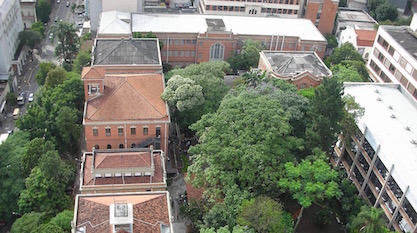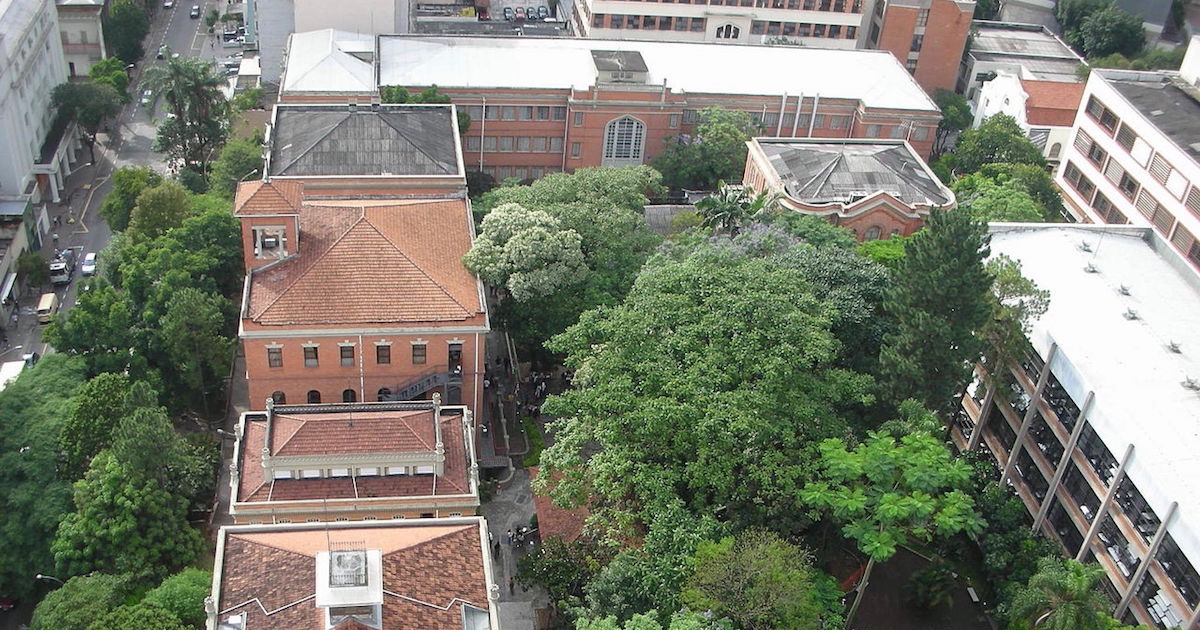 Education
Education
 Intelligent Design
Intelligent Design
Brazil’s Mackenzie University to Launch New Center on Intelligent Design


This week, one of Brazil’s most prestigious private universities will launch an academic center on intelligent design in conjunction with Discovery Institute.
This coming Friday and Saturday, May 5-6, Mackenzie Presbyterian University in São Paulo will inaugurate Discovery Institute-Mackenzie, an interdisciplinary research center of the university that will foster scientific research into the evidence of intelligent design in nature as well as exploring the relationship between science and culture, including the relationship between science and faith.
“This is a milestone in the debate over origins, and it testifies to the growing worldwide influence of both intelligent design and Discovery Institute,” said Discovery Institute’s President Steve Buri.
Buri will attend the official inaugural festivities for the new center along with Lehigh University biochemistry professor (and CSC Senior Fellow) Michael Behe; molecular biologist and Biologic Institute Director Douglas Axe; and physicist and CSC Research Coordinator Brian Miller. A reception and meeting on Friday evening will be followed by an all-day intelligent design conference on Saturday featuring Behe, Axe, and Miller, in addition to Brazilian scientists.
Discovery Institute-Mackenzie is a joint project of Mackenzie University and the Brazilian Society of Intelligent Design, which is headed by research chemist Dr. Marcos Eberlin. A member of the Brazilian National Academy of Sciences, Dr. Eberlin is one of the most renowned scientists in Brazil. Author of more than 700 scientific articles, he conducts research at the Thomson Mass Spectrometry Laboratory he founded at Campinas University, where he has been a Professor of Chemistry at the Institute of Chemistry. During his career, he has personally supervised close to 200 doctoral and post-doctoral scientists in the field of chemistry.
“There has been a phenomenal growth in the interest in intelligent design among young scientists in Brazil,” said Eberlin. “With the launch of Discovery Institute-Mackenzie, Brazil is poised to make a significant contribution to the intelligent design debate, not just in Brazil, but around the world.”
CSC Associate Director John West noted that Discovery Institute-Mackenzie is the result of several years of discussions with the leadership and faculty of Mackenzie University, culminating in an official agreement of cooperation signed last year.
Enrolling more than 40,000 undergraduate and graduate students, Mackenzie is one of the oldest and most respected universities in Brazil. It was Brazil’s first educational institution to be co-educational, and from the start it welcomed students from all social classes, races, and religious backgrounds. It even helped introduce soccer to Brazil.
Discovery Institute-Mackenzie will underwrite scientific and academic research, hold conferences, produce television and video programs, publish books, and create educational materials.
“Mackenzie University provides a strategic platform to reach the more than 200 million people in Brazil,” said West. “But more than that, it can provide a model for other academic institutions around the world about how an intelligent design perspective can encourage first-class scientific research as well as forge a constructive relationship between science and culture.”
Photo: Portion of Mackenzie Presbyterian University’s São Paulo campus, from above, by charlesblack (Own work) [CC BY-SA 1.0], via Wikimedia Commons.
